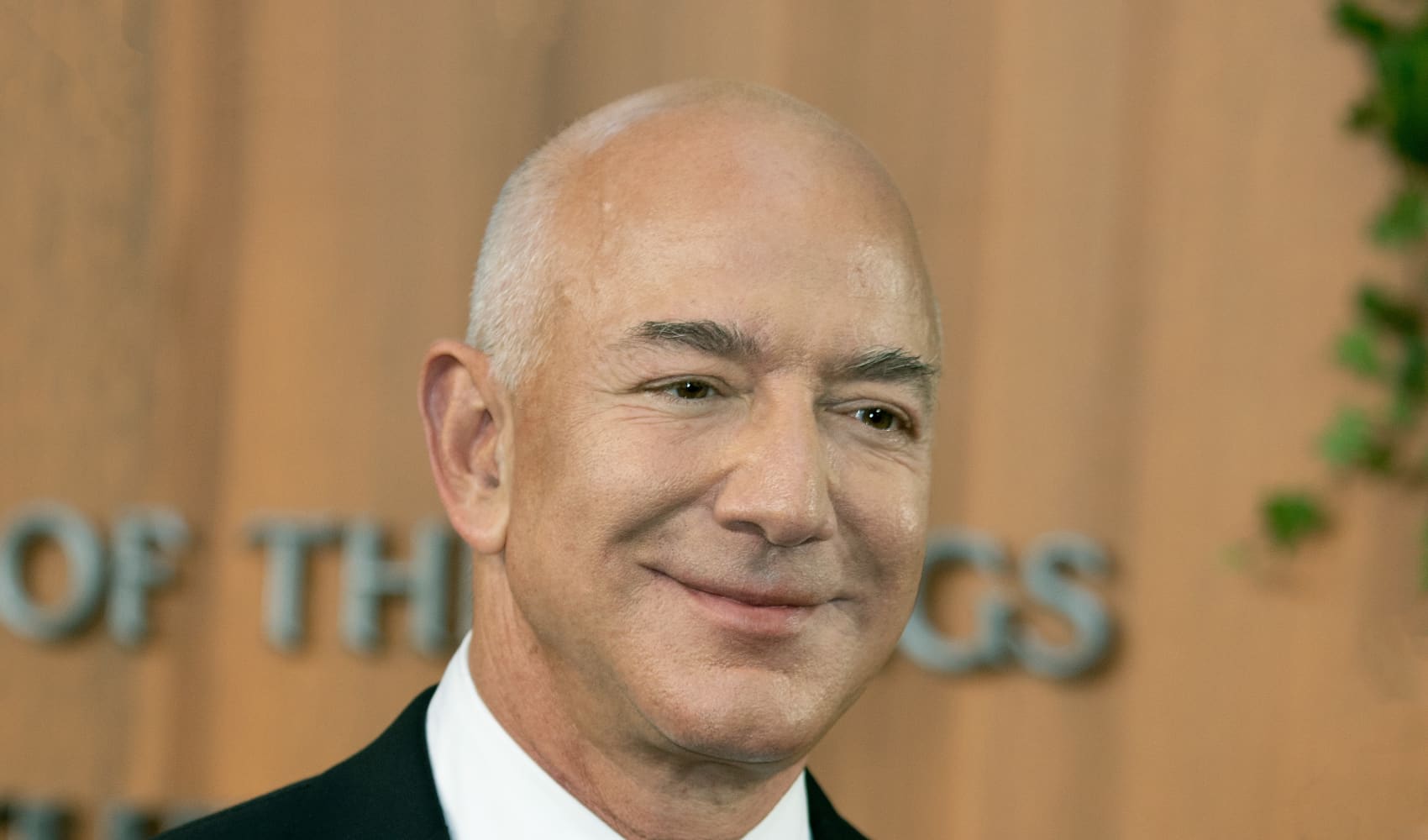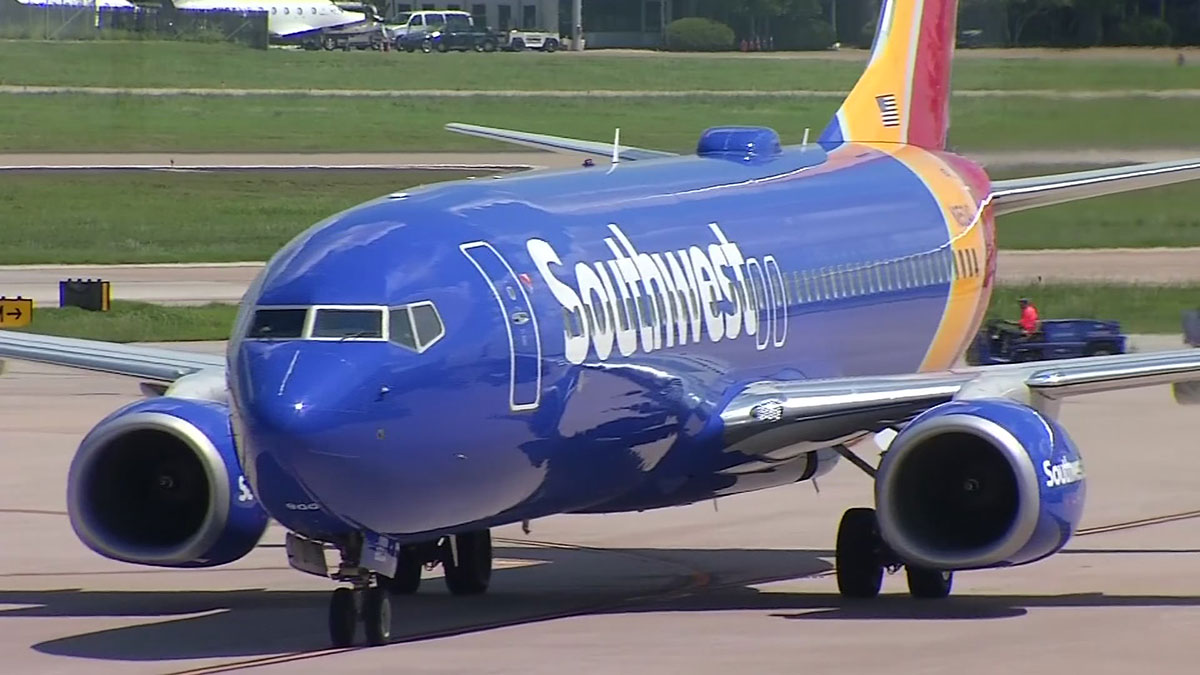The president of the United Auto Workers said Friday the union will expand its strike against major automakers by walking out of 38 General Motors and Stellantis facilities in 20 states, including two facilities in North Texas.
In Dallas-Fort Worth, workers at the Stellantis Dallas Parts Distribution Center in Carrollton and the GM Fort Worth Parts Distribution Center in Roanoke are expected to walk out at 11 a.m. Friday.
For now, the thousands of employees working at GM's Arlington assembly plant will continue working to build full-size Tahoes, Suburbans, and Yukons.
The UAW on Friday targeted distribution centers, not production plants. The three strikes that began at plants Ford, GM and Stellantis plants one week ago will go on, the union said.
Get DFW local news, weather forecasts and entertainment stories to your inbox. Sign up for NBC DFW newsletters.
Ford was spared additional strikes because the company has met some of the union's demands during negotiations over the past week, said UAW President Shawn Fain.
Fain made a point of saying “Ford is serious about reaching a deal,” but added that there’s still work to be done with that company.
Business News
Fain did not announce any expanded strike at Ford but said the current walkout in Wayne, Michigan, continues along with the current strikes against GM and Stellantis facilities.
The union is pointing to the companies' huge recent profits as it seeks wage increases of 36% over four years. The companies have offered a little over half that amount. The UAW has other demands, including a 32-hour work week for 40 hours of pay and a restoration of traditional pension plans for newer workers.
"In negotiations, you're going to reach a little bit," said J. Carlos Martinez, a professor at Dallas College and economist with Crescent Securities Group, Inc. "So, I would probably say the 32-hour workweek is probably off the table, I would think... resuming the pension for new employees probably off the table. But wage increase and cost of living, I think are on the table."
The companies said they can't afford to meet the union's demands because they need to invest profits in a costly transition from gas-powered cars to electric vehicles.
"That is absolutely valid, it's a major concern," said Martinez. "The automakers are getting ready to spend-- or are in the middle of spending-- enormous amounts of money to convert the plants, or in some cases create new plants, to produce electric vehicles."
But he said the car companies won't want to stall negotiations for too long.
"If this actually blows up and becomes a full strike, this can cost the automakers literally billions of dollars per week. So, this could get expensive very quickly," Martinez said.
It could get expensive quickly for workers on the line, too.
“I was a little nervous at first because I was like, ‘How are we even going to make it on the strike pay?’” said Destiny Bell, who works at GM's Roanoke facility with her dad and brother.

She ultimately decided to take the pay cut now, hoping UAW would secure better wages in the near future.
“It’s really hard. I had to move back in with my parents because I can’t afford rent. I’m a single mom, so, I don’t get child support," Bell said.
She even tried working two jobs to help pay bills.
“I was doing home health on the side, doing that in the mornings and then coming here. But then that got a little too much because I was barely getting any sleep," Bell said.
Bell said her dad, who's worked at the same plant for 43 years, advised her months ago to set aside money in case of a strike, so she did. But even then, she guesses she has about a month before she starts worrying.
The potentially long timeline worries others, too-- especially workers who were part of a weeks-long strike in 2019.
“Imagine six weeks without paycheck. It’s really very hard on families, especially the young families that are making $17 an hour. They depend—they’re week to week on their paychecks," said Adam Martinez, UAW local chairman.
Local UAW president, Cornelius Lincoln, is hopeful the wait is worth it.
“It’s unfortunate that we have to do them; I really wish there was a better system to get things negotiated before something like this comes to," he said.
J. Carlos Martinez said a full stop at plants like the North Texas ones could impact supply chains in as little as one week.
The UAW's contract with the automakers expired at midnight on Sept. 14, and workers walked out of a Ford assembly plant near Detroit, a GM factory in Wentzville, Missouri, and a Jeep plant run by Stellantis in Toledo, Ohio. The initial strike has involved about 13,000 of the union's 146,000 members.
Fain said earlier this week he would call on workers at more plants to strike unless there was significant progress in contract negotiations with the carmakers. Bargaining continued Thursday, although neither side reported any breakthroughs, and they remained far apart on wage increases.
The strike until Friday had involved fewer than 13,000 of the union's 146,000 members. The companies have laid off a few thousand more, saying some factories are running short on parts because of the strike.
Still, the impact is not yet being felt on car lots around the country - it will probably take a few weeks before the strike causes a significant shortage of new vehicles, according to analysts. Prices could rise even sooner, however, if the prospect of a prolonged strike triggers panic buying.
One week ago, workers went on strike a week ago at three assembly plants - a Ford factory near Detroit, a GM plant outside St.
Louis, and a Jeep plant owned by Stellantis in Toledo, Ohio.
The Detroit News reported Thursday that a spokesman for Fain wrote on a private group chat on X, formerly Twitter, that union negotiators aimed to inflict "recurring reputation damage and operational chaos" on the carmakers, and "if we can keep them wounded for months they don't know what to do."
Ford and GM seized on the messages as a sign of bad faith by the UAW.
"It's now clear that the UAW leadership has always intended to cause months-long disruption, regardless of the harm it causes to its members and their communities," GM said in a statement.
Ford spokesman Mark Truby called the messages "disappointing, to say the least, given what is at stake for our employees, the companies and this region."
The UAW spokesman, Jonah Furman, did not confirm writing the messages, which were linked to the same picture as his X account, and called them "private messages" that "you shouldn't have," the newspaper reported.



